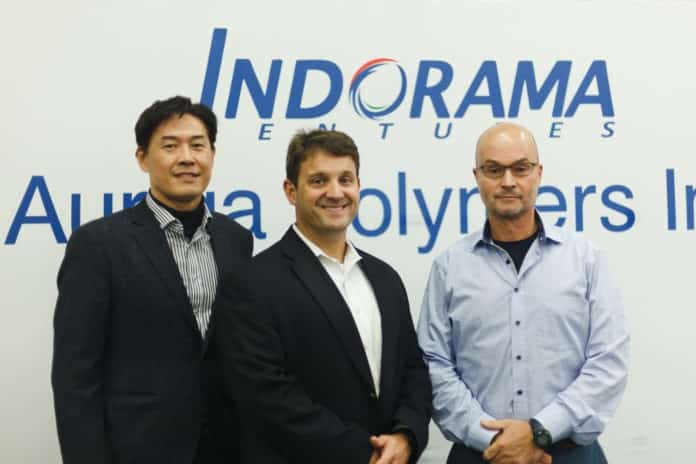
In the Upstate, recent jitters over trade relations with South Korea are giving way to collaboration.Trade tensions USA Korea joint venture
A 50-50 joint venture between Seoul-based Huvis Corp. and Indorama Ventures Public Co. Ltd., now getting underway at Indorama’s Auriga Polymers subsidiary in Spartanburg County, may end up serving as an example of how global disputes can be overcome in ways that unleash mutual opportunities.Trade tensions USA Korea joint venture
Huvis is the world’s leading supplier of low-melting fiber, an eco-friendly adhesive fiber used in composites in the automotive, furniture, and bedding industries for insulation, sound absorption, and other functions.
Automotive applications account for 53 percent of global LMF consumption, according to a July 2018 report from Global QY Research.Trade tensions USA Korea joint venture
The joint venture’s $48 million investment at Auriga, which produces fibers, resins, and specialty polymers, is intended to grow U.S. market share in LMF and help sidestep prolonged trade tensions, said Lee Sung-gyun, Huvis’ senior manager for the LMF project.
“We believe we better be here and avoid the trade risk and then use all the benefits here and better circumstances here,” Lee said as he met with his new American counterparts.
Last year, the U.S. Commerce Department initiated 79 anti-dumping and countervailing duty investigations against foreign companies believed to be selling products abroad at less than fair value — a 52 percent increase over 2016 — with the government scrutinizing the sale of certain polyester staple fibers from four countries, including South Korea.
This past June, Huvis announced that Washington had decided to impose zero-percent anti-dumping duties on its low-melting fiber exports in a separate review and “this final determination is expected to boost sales further.” Tensions also spiked this year as the U.S. threatened tariffs on South Korean steel.
Huvis now holds a 40 percent share of the U.S. LMF market but there is concern over how long the trade skirmishes might last, Lee said.
“We believe in the future there will be more pressure for that, so that we decided to be here and coupling with IVL, who has the capability to supply the polymer technology and facilities … and people who we can hire from here,” Lee explained.
Hiring is beginning for 50 workers who will operate the new facility after it is constructed, said Mark Holden, vice president of operations at Auriga.
Once hired, they will undergo intensive training and will work in concert with South Korean and American engineers and business-development officers.
“We picked a great partner who’s an expert in the field,” Holden said.
Initial distribution of domestically produced LMF is expected in early 2020 after
construction of the new facility is completed, said Marc Buchert, the project manager, with sales in Mexico and Canada to follow.
According to Holden, migrating LMF production from South Korea to the Upstate will allow Huvis to ensure that its customers here have “the least possible supply interruptions to trade … you have a stronger position for your customers by having an asset in the region that you’re currently selling.” Trade tensions USA Korea joint venture
With BMW, Volvo, Mercedes-Benz, Volkswagen, and Kia plants located across the Southeast, Buchert added, the region represents a top market for the joint venture’s LMF.
“If you look at all the automotive suppliers around us, why would you not do this?” he asked.
Indorama, a Thailand-based petrochemicals producer with 85 facilities in 29 countries, will ship bulk chemicals used in LMF production into the plant by rail from Texas, Alabama, and Canada. Trade tensions USA Korea joint ventur
The recent drop in the corporate tax rate and inducements to attract foreign investment are expected to “significantly help the joint venture reinforce its cost competitiveness,” Huvis Corp. said in a statement.
John Lummus, president and CEO of Upstate SC Alliance, said he sees more foreign investment in the region, including more joint ventures, which generally arise when companies have similar business lines or have worked together in other markets.
“I think we will continue to see more of that as we get more foreign direct investment in the region,” drawn here by workforce and manufacturing capabilities, Lummus said.
As for trade tensions, “I think you are going to see some situations where companies would be able to take advantage of that, and that’s great for us, but I think in the overall big picture, we’re seeing that it’s a negative,” he said. Trade tensions USA Korea joint ventur
Currently, the Upstate hosts 466 foreign-owned companies, according to Alliance data. Spartanburg County is home to more than 200 of them.
